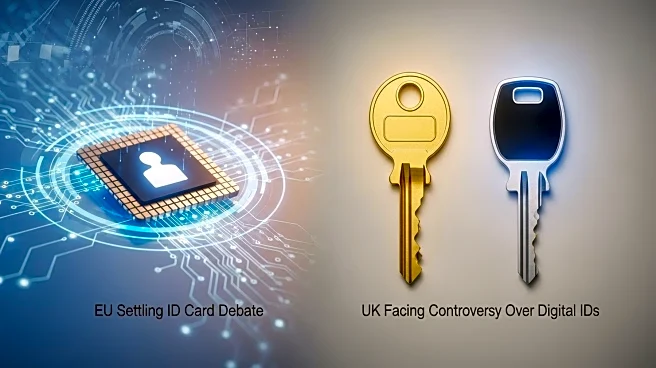What's Happening?
The debate over national ID cards in the UK contrasts with the settled practice in the EU, where physical and digital IDs are widely used. The EU's eIDAS 2.0 regulation will require digital ID wallets for all citizens by 2026, enhancing access to services and streamlining public administration. Countries like Denmark and Estonia have successfully implemented digital IDs, offering citizens convenience and security.
Why It's Important?
Digital IDs can modernize public services and improve access to government resources. The EU's approach highlights the benefits of digital identity systems, which can enhance security and efficiency. The UK's resistance to ID cards reflects concerns over privacy and civil liberties, but the EU's experience suggests that digital IDs can be implemented successfully with proper safeguards.
Beyond the Headlines
The implementation of digital IDs raises questions about privacy, data security, and the balance between convenience and civil liberties. The EU's experience may inform the UK's approach to digital identity, emphasizing the importance of transparency and public trust. The debate over digital IDs may influence broader discussions on technology and governance.









